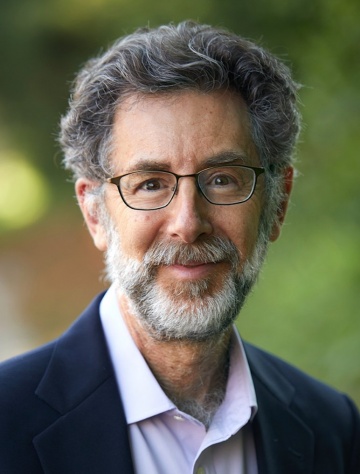Columbia College | Columbia University in the City of New York
Professor Robert S. Levine ’75 Was Transformed by the Core

What were you like when you arrived at Columbia?
Both cocky and shy, and most definitely pre-med. I had been a math and science nerd in high school, and though I liked to read, I had done very little reading beyond the books assigned in school (and Mad magazine). I applied to Columbia because it was an Ivy League university in New York City, not because it had the Core Curriculum. But the summer before freshman year, I started reading the books on the Humanities reading list in order to get a head start that would help me do well in my math and science classes. The problem was, I fell in love with Homer and Aeschylus! By the time I got to campus, I was all in on the humanities, which led to a fairly traumatic first semester: I dropped my chemistry class halfway through when it was clear that the best grade I could manage was an “F,” and I changed my calculus class to pass/fail. Lucky for me, a “D” was a pass. The new me, transformed by the Core, was an English major by the end of my first year.
What do you remember about your first-year living situation?
I lived in a two-room suite in Carman with other male students (the College was not yet co-ed). During Orientation week, the dorm counselors put together a showing of X-rated stag films in the first-floor lounge. For an innocent kid from the suburbs, that was pretty memorable. Those were different times. My roommate was a friendly, good guy, but the other roomies in the suite made quite the odd couple. One was Goth: He painted his walls black and prohibited the use of light in his room other than from candles. He did this over the objections of his roommate, a conservative Republican from Shaker Heights who had come to Columbia to study with Lionel Trilling CC 1925, GSAS’38 and Jacques Barzun CC 1927, GSAS 1932. Do I need to tell you that they did not get along, and that the pairing made for an interesting freshman year of people-watching?
What Core class or experience do you most remember, and why?
What I actually most remember is my freshman English class, which was not a Core class but a required class that had been shaped by the Core. What I mean is that freshman English was more a literature seminar than a writing class, and it was mainly taught by graduate students who used the course to develop the kinds of classes they would eventually teach if/when they got tenure-track jobs elsewhere. My instructor was dissertating in the 18th century, and in fall 1971 he had his freshmen read and write about Edmund Burke’s Reflections on the Revolution in France, Thomas Paine’s Rights of Man, Matthew Lewis’s The Monk: A Romance, and Ann Radcliffe’s The Italian. In other words, he brought together the political and the Gothic. I loved the way he blended history and literature, and that’s the course that led me to the English major. Years later, after I got my Ph.D., I greeted the instructor (now a professor) at a Modern Language Association conference and told him how important the class had been to my own career. I wish I could tell you that he warmly responded that he taught for occasions like this, but instead he told me and the friends he was chatting with that he had no idea who I was and found it almost comical that I imagined he would remember students from his graduate student days. I have happier stories I could tell, but this exchange has stayed with me. I try to do better by my own students.
Did you have a favorite spot on campus, and what did you like about it?
Butler Library! To an undergraduate it was a mysterious place, and I decided I didn’t want to make it less mysterious in my older age by using the internet to learn about its floorplan. My memory tells me it had upward of 10 floors and hundreds and hundreds of reading rooms; I suspect it’s a bit smaller. I don’t remember ever working in the handsome main reading room. I loved wandering the halls and floors and rooms, and eventually settled on the then-recently established Richard Hofstadter GSAS’42 room as my favorite place to do my own reading and writing. As an undergraduate, I learned that Hofstadter was known for, among other things, his classic essay “The Paranoid Style in American Politics.” That essay eventually had an important influence on my dissertation and first book, which studied conspiracy fears in early American fiction.
What, if anything, about your College experience would you do over?
Hard to say. I don’t like revisiting the past. But I wish I had taken courses with the great American historian Eric Foner ’63, GSAS’69 and with the renowned Shakespearean lecturer Edward Tayler. And I wish I had stuck with the photographer’s job I landed at Spectator in fall 1971. I got a few photos into the newspaper but found working in the darkroom incredibly time consuming. No doubt the chemical process of developing film from scratch — which had the feel of doing alchemy — would have become easier.
More “Take Five”
- 1 of 32
- ›

